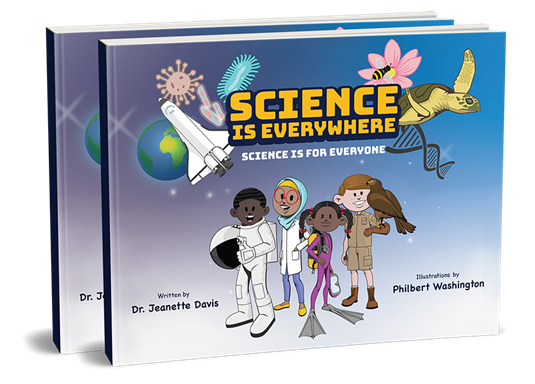If Dr. Jeanette Davis were to go back in time and tell her younger self where she would be right now, it’s likely her younger self would not be surprised.
Dr. Davis, also known as Dr. Ocean, has accomplished many things in her career. She is a first-generation college student, graduate from Hampton University, a National Oceanic and Atmospheric Administration (NOAA) marine microbiologist who works as a policy analyst and an alumna of a popular program that supports the creation of students who are NOAA workforce ready.
While pursuing her Ph.D. from the University of Maryland, Dr. Davis became a scholar in NOAA’s Living Marine Resources Cooperative Science Center, one of the four Cooperative Science Centers (CSCs) under the Educational Partnership Program at NOAA. The CSC helped her fund her graduate education as well as help make connections with scientists and mentors in the program. She shared her thoughts in an interview for NOAA’s 50th Anniversary Oral History Project, she said “NOAA gave me the tools and confidence to pursue a career in marine science, that kind of support doesn’t just open doors, it keeps them open.”
Dr. Davis takes huge pride in being an advocate for the next generation from often overlooked communities, making sure they know they too belong in science. She shared her thoughts in a U.S. Department of Commerce spotlight, saying “Today, I continue to promote science and mentor younger generations through several programs here at NOAA and in my personal life. I attribute much of my success as a scientist to the strong foundation that I received in the Marine Science Department at Hampton University where I am a member of several graduate advisory committees. I am grateful for my journey as an African American woman scientist and understand the importance of empowering young people through science.”
Dr. Davis has put together her scientific training along with her passion for outreach, writing her very own children’s book, “Science is Everywhere: Science is for Everyone,” to show young children that science is for everyone in the world. She was inspired to make this book by the lack of representation when she was growing up. She is motivated to help open the doors for the future generation of scientists from often overlooked communities, just like her time in the LMRCSC did for her.

Through mentorships, community involvement and classroom visits, Dr. Davis continues NOAA’s mission of building a more well-represented scientific community and workforce. Her impact on the STEM field shows the value of NOAAs CSCs. She truly represents the future STEM field that composes individuals from multiple backgrounds.
